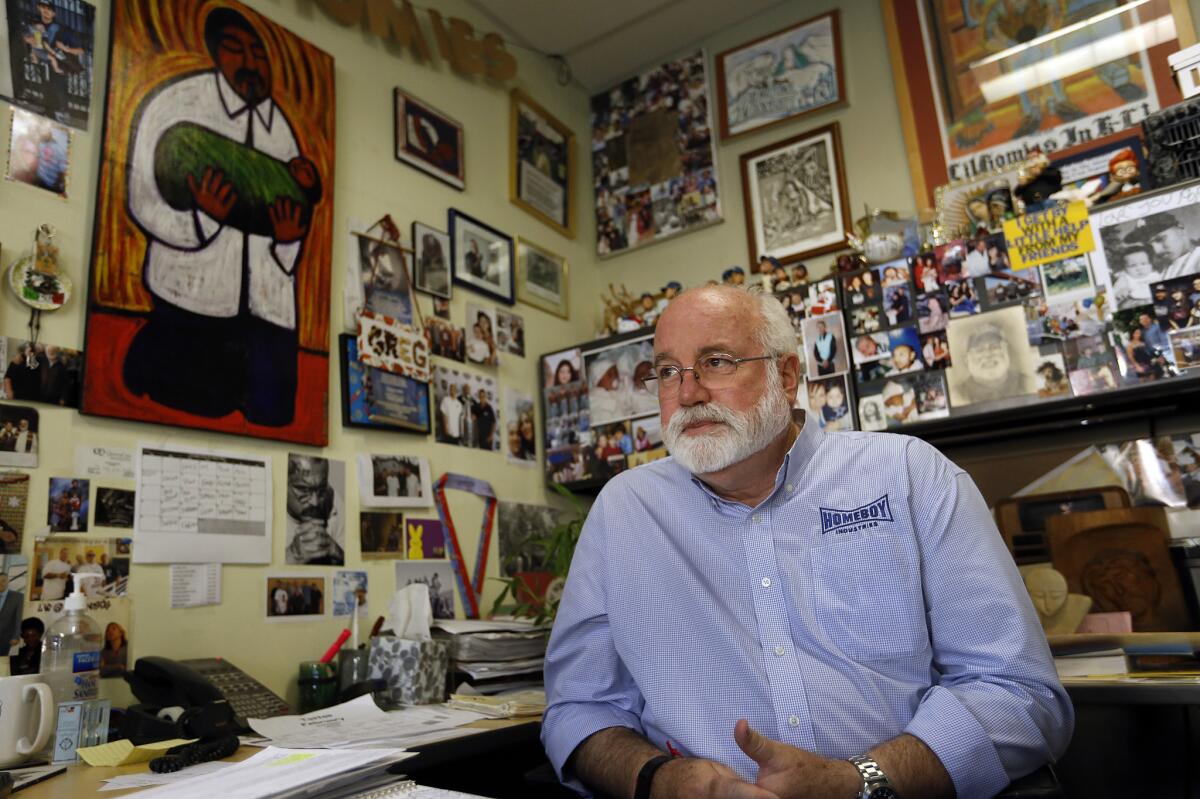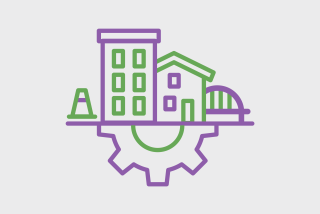Father Greg Boyle drops his support for measure to fight ‘mega projects’

Father Greg Boyle, executive director and founder of Homeboy Industries, has retracted his support for a proposed Los Angeles ballot measure that would limit so-called mega-projects across the city.
The head of the nonprofit group Homeboy Industries retracted his support Monday for a proposed ballot measure targeting overdevelopment, saying it won’t help Los Angeles create housing for the working poor.
Father Greg Boyle, Homeboy’s founder and an influential figure in the city’s fight against poverty, was named last week as one of the newest community leaders to favor the proposed Neighborhood Integrity Initiative. Four days later, he announced he had studied the measure further — and concluded he should remain neutral.
The ballot proposal, backed by the AIDS Healthcare Foundation and the Coalition to Preserve L.A., is designed to rein in the city’s practice of changing planning, zoning and parking rules for individual development projects.
Backers have argued that so-called mega projects are destroying the character of neighborhoods while pushing out renters. Opponents, in turn, say the coalition’s ballot measure would deprive the city of much-needed housing.
“I want more access to housing for the homeless and the working poor,” Boyle said in an letter sent to The Times. “I am now convinced that this initiative will not provide that.”
The Coalition to Preserve L.A. is seeking to impose a two-year moratorium on key development projects, such as those that require increases in density. For weeks, the group has argued that the city too frequently changes its rules for well-connected developers.
Former Los Angeles Mayor Richard Riordan and Alice Callaghan, founder of skid row service agency Las Familias del Pueblo, have come out in favor of the proposal. Opposed are various business, labor and community groups, including the United Way of Greater Los Angeles and the Los Angeles/Orange Counties Building and Construction Trades Council.
Robin Hughes, president of nonprofit affordable housing developer Abode Communities, said Boyle’s change of heart shows that as Angelenos learn more about the proposed measure, they will conclude that it’s a threat to low-income housing.
“When people think about this measure, they think about luxury buildings going up in downtown or Hollywood or the Westside,” said Hughes, who is part of the coalition fighting the proposal. “They’re not thinking about the 75-unit affordable apartment building that could be built in South L.A. or Boyle Heights or the San Fernando Valley.”
Boyle, whose nonprofit provides job training and other services to ex-convicts and former gang members, declined to grant an interview. In his letter, Boyle said he still believes the city’s zoning policies are “broken and in need of serious repair.” He noted that he had signed on as a supporter of the measure on the recommendation of two friends.
Boyle did not name the friends.
Michael Weinstein, president of the AIDS Healthcare Foundation, said he had not received an explanation from Boyle for his switch in position. But he argued that luxury housing projects being approved by the city — typically with changes in zoning or other special approvals — are gentrifying sections of downtown, Koreatown and other neighborhoods.
“Gentrification has never helped poor and working people have more access to quality affordable housing,” Weinstein said.
Follow @DavidZahniser for what’s happening at Los Angeles City Hall
More to Read
Sign up for Essential California
The most important California stories and recommendations in your inbox every morning.
You may occasionally receive promotional content from the Los Angeles Times.











